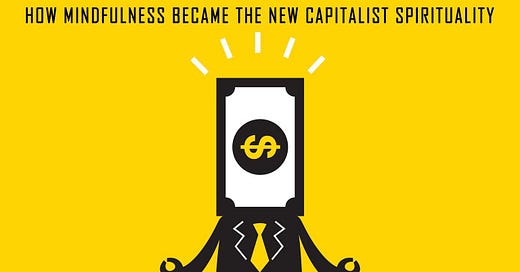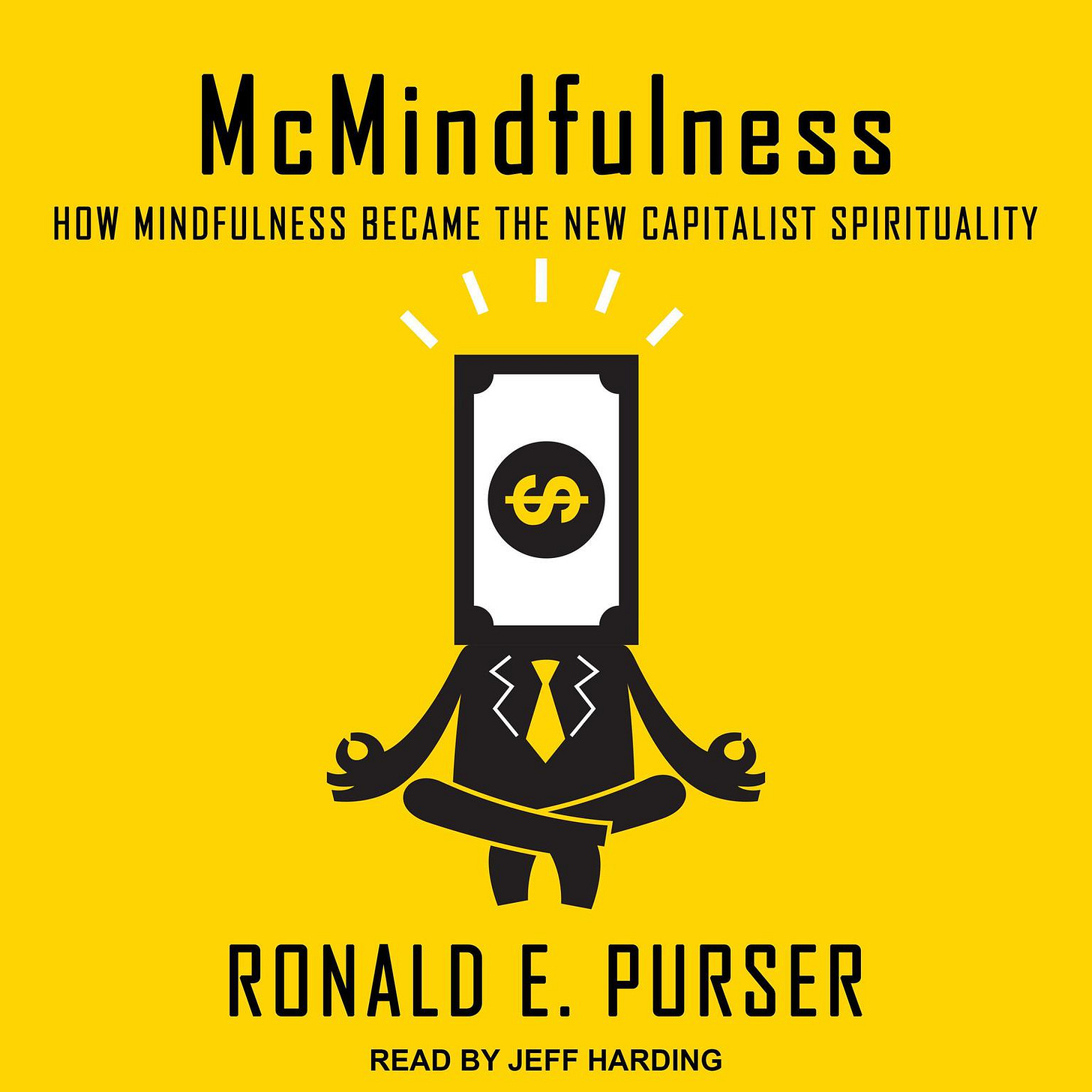vol. 1 issue 32
Greetings,
Many in this nation take it for granted that mindfulness is helpful for managing stress, alleviating pain, and feeling more connected to one’s self. I would agree that in the right context, this is so.
And yet.
I have not seen any serious national consideration of the risk/benefit ratio of mindfulness’s call for us as individuals to “go inside” ourselves in search of the root cause of our stress.
What if the root cause isn’t inside, but is coming at us from the outside?
What if mindfulness as it is taught in the working world is exacerbating rising public health threats such as anxiety, depression, and suicide?
Perhaps you don’t actually think mindfulness has lived up to the promise of stress relief you’ve sought. Maybe you blame yourself for not “getting it”, so you doubled down, figuring you’d just keep practicing until you finally got it right…and maybe that is just a waste of your time, an effort doomed to fail, and take you down with it.
It’s time we consider that what we really need for people to feel less stressed out is better policies and more humane working conditions, not people feeling badly about themselves for their inability to manage their anxiety and hopelessness.
Stress isn’t a pathology to treat, but a lie we have conditioned ourselves to believe is our flawed way of coping with an unfair world. That is the argument of my guest on this episode of docu-mental, Ronald E. Purser, PhD, a professor of management at San Francisco State University and an ordained Zen dharma teacher. He’s written a book called, McMindfulness: How Mindfulness Became the New Capitalist Spirituality.
In this discussion, Dr. Purser takes us through a brief history of how “mindfulness” was derived from Buddhist traditions in Southeast Asia, and how as it traveled West, was uncoupled from its spiritual tether, eventually becoming a tool that keeps people focused on themselves and thus not on challenging the real “stressors” such as loss of autonomy, not enough food or income, and hostile work environments.













